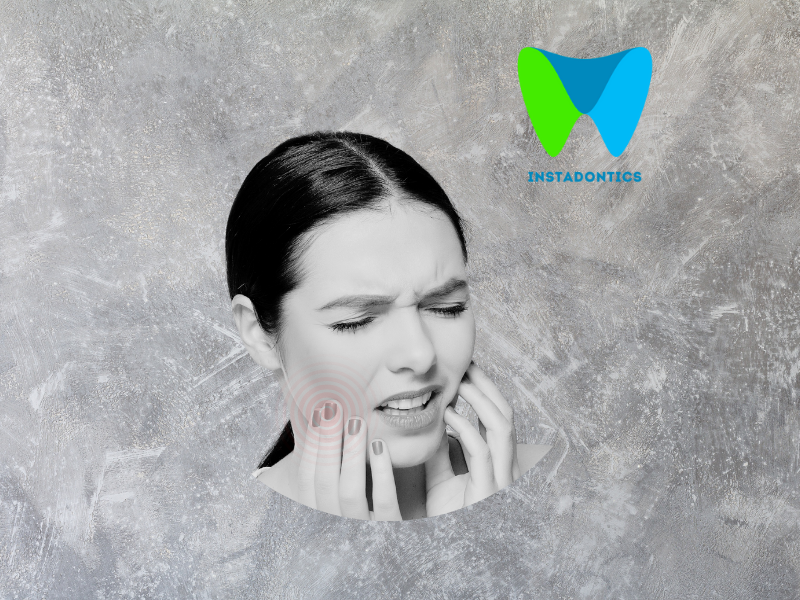Teeth grinding, or bruxism, often occurs during sleep and can lead to various dental and health issues if left unchecked. Many people are unaware that they grind their teeth at night, as it typically happens unconsciously. However, there are several signs and symptoms that can indicate nighttime teeth grinding. Here’s how to tell if you grind your teeth at night, along with tips on what to do if you suspect you have this condition.
Signs You Might Be Grinding Your Teeth at Night
- Worn Tooth Enamel: One of the most noticeable signs of bruxism is the wearing down of tooth enamel. If you notice that your teeth appear flatter, chipped, or more sensitive than usual, it could be a sign that you are grinding your teeth.
- Jaw Pain or Discomfort: Grinding your teeth can lead to muscle fatigue and soreness in the jaw. If you wake up with a sore jaw or find it difficult to open your mouth fully, this could indicate bruxism.
- Headaches: Frequent headaches, particularly tension-type headaches or migraines, can be associated with teeth grinding. If you experience headaches upon waking, it may be due to the strain placed on your jaw muscles during the night.
- Facial Pain: Some individuals may experience pain in the face or neck due to the muscle tension caused by grinding. This discomfort can extend to the temples and even the ears.
- Disrupted Sleep: If you find yourself waking up frequently during the night or feeling restless, it could be a sign of bruxism. Grinding may interrupt your sleep cycle, leading to fatigue during the day.
- Noisy Grinding Sounds: While you may not be aware of it, your partner or someone else who shares your sleeping space may hear the grinding sounds. If they mention that they’ve heard you grinding your teeth at night, it’s a strong indication that you may be experiencing bruxism.
- Tooth Sensitivity: Increased sensitivity to hot, cold, or sweet foods can be a sign of enamel wear caused by grinding. If you find that your teeth are more sensitive than usual, it may be worth investigating further.
- Changes in Bite Alignment: Over time, consistent grinding can lead to changes in how your teeth fit together when you bite. If you notice that your bite feels different, it could be a result of bruxism.
How to Confirm if You Grind Your Teeth
If you suspect that you grind your teeth at night, consider the following steps to confirm your suspicions:
- Keep a Sleep Journal: Track your sleep patterns, noting any signs of discomfort, headaches, or jaw pain upon waking. Documenting your symptoms over time can help identify patterns related to bruxism.
- Ask a Partner or Family Member: If you share a bed with someone, ask them if they’ve noticed any grinding noises or unusual behaviors during the night. Their observations can provide valuable insights.
- Visit Your Dentist: A dental professional can perform a thorough examination of your teeth and jaw. They can look for signs of wear, misalignment, or other issues related to bruxism. If necessary, they may recommend a night guard to protect your teeth from grinding.
- Monitor Your Stress Levels: Since stress and anxiety can contribute to bruxism, pay attention to your stress levels and any related symptoms. If you notice an increase in stress, it may correlate with your grinding habits.
- Consider a Sleep Study: In some cases, a sleep study may be recommended to monitor your sleep patterns and identify any underlying sleep disorders. This can provide a comprehensive view of your nighttime habits.
What to Do If You Grind Your Teeth
If you confirm that you grind your teeth at night, it’s essential to take steps to manage the condition:
- Consult a Dentist: Your dentist can provide guidance on managing bruxism and may recommend a custom night guard to protect your teeth during sleep.
- Practice Stress Management: Since stress is a common trigger for bruxism, incorporating relaxation techniques such as deep breathing, meditation, or yoga into your daily routine can help reduce anxiety levels.
- Establish a Relaxing Bedtime Routine: Create a calming pre-sleep routine to signal to your body that it’s time to wind down. This could include reading, taking a warm bath, or practicing gentle stretches.
- Limit Stimulants: Reduce or eliminate caffeine and alcohol intake, particularly in the hours leading up to bedtime, as these substances can exacerbate teeth grinding.
- Stay Hydrated: Ensure you’re drinking enough water throughout the day, as dehydration can lead to muscle tension and discomfort.
- Seek Professional Help: If stress and anxiety are contributing to your bruxism, consider speaking with a mental health professional. Therapy can provide valuable coping strategies and support.
- Monitor Your Symptoms: Keep track of any changes or improvements in your symptoms as you implement management strategies. This can help you and your dentist determine the most effective approach.
Related: Can Anxiety Cause Teeth Grinding?
Teeth grinding at night is a common condition that can lead to various dental and health issues if not addressed. By being aware of the signs and symptoms of bruxism, you can take proactive steps to confirm your suspicions and seek appropriate management. Regular dental check-ups and open communication with your healthcare provider are essential for maintaining your oral health and overall well-being. If you suspect you grind your teeth at night, don’t hesitate to reach out for support and guidance. With the right strategies, you can effectively manage bruxism and protect your smile.



